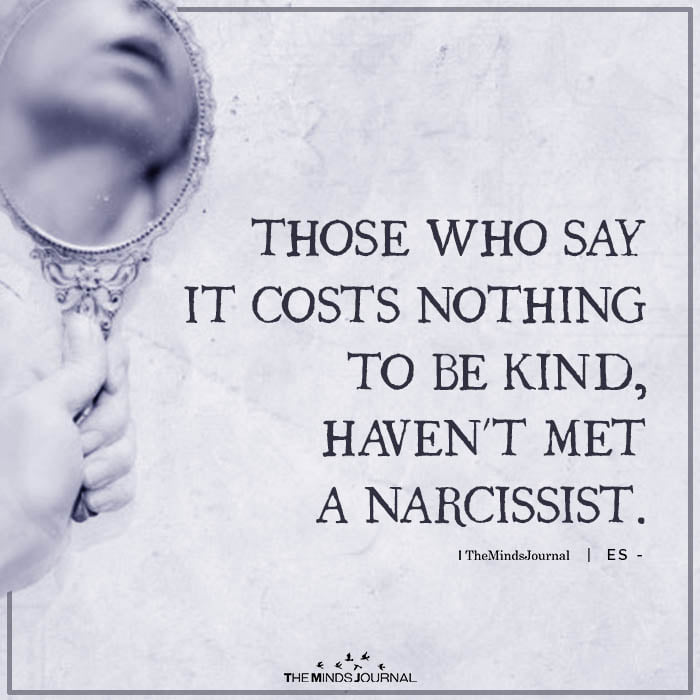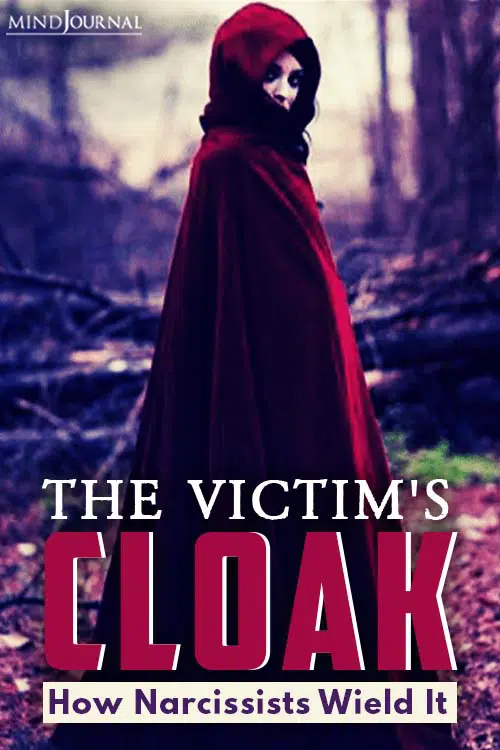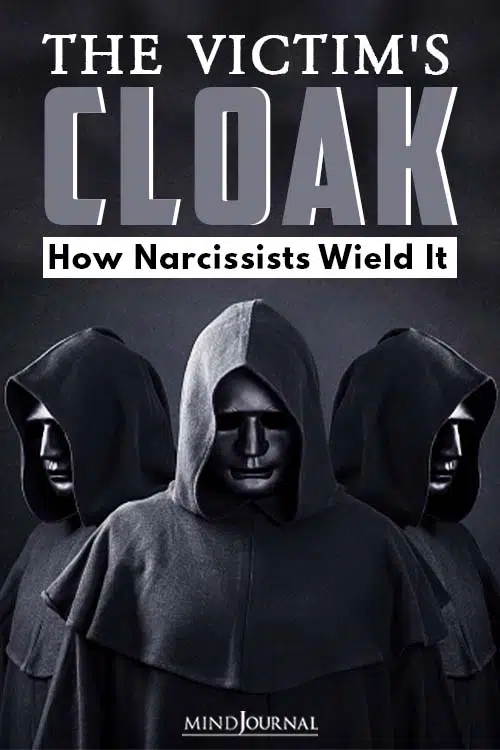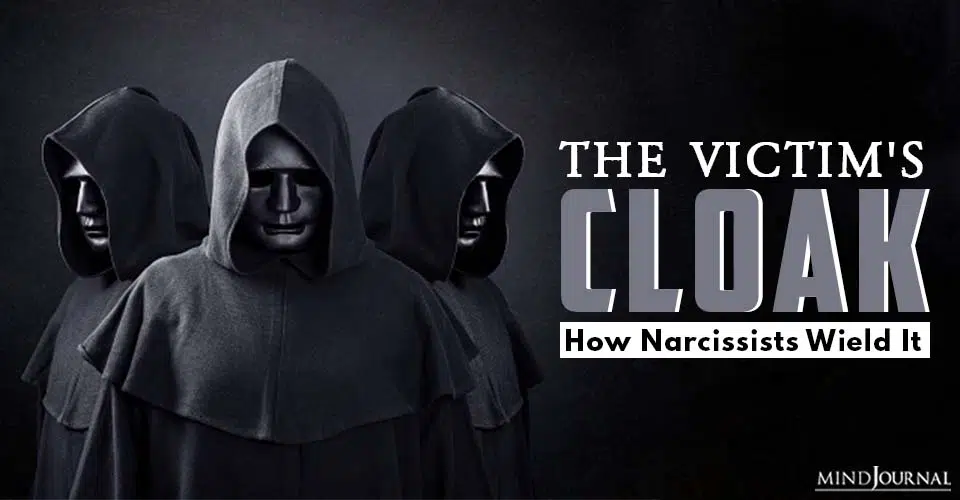The Victim. I know there are those who do not like that word. They regard it as stigmatising and a hindrance to recovery. One understands such an approach, but nevertheless, it is the appropriate word for those who have encountered our kind in the narcissistic dynamic. What does victim mean?
‘a person harmed, injured, or killed as a result of a crime, accident, or other event or action’
There is no denying this would apply to someone who has been ensnared by us.
‘a person who is tricked or duped’
Equally applicable. After all, it is the very essence of our behaviour that we trick or dupe you.
‘a person who has come to feel helpless and passive in the face of misfortune or ill-treatment’
Accurate again. Of course, not everybody may feel this way, but many will readily recognise it, even if they prefer not to announce it.
Accordingly, these various definitions are valid and accurate to those who have been involved with our kind, be it romantic, social, familial or otherwise.
It remains the case, however, that when it comes to the issue of victimhood and who gets to wear The Victim’s Cloak that once more our kind exhibits our well-known hypocrisy. We regard you as the victim (we have to as this is part of the maintenance of our control and need for superiority) but we also then look to remove that victim status from you.
The various schools of narcissism approach this double standard in differing ways, in respect of how we stamp you with ‘Victim’ but then deny you any use or recognition of it. We both adorn you with the cloak and then remove it in some way.
Related: 11 Traps of Narcissistic Entanglement
The Lesser Narcissist
The Lesser treats you as a victim because you are beneath him or her. You are considered useless, in the way and an annoyance and your dithering, inability to second guess the Lesser results in a swift ignition of fury and its manifestation as usually heated fury. You are made to feel the victim, by being lambasted verbally, physically assaulted, sexually assaulted, demeaned, having your property destroyed and seeing others you cared about drawn into the whirlwind.
The Victim’s Cloak is rapidly placed around your shoulders through this treatment of you but then the Lesser immediately rips it away, shreds it and hurls it to one side so you cannot use it. Your victimhood is created through aggressive acts or acts.
However, you are not allowed to retain the mantle of the victim because the Lesser takes the firm view that whatever treatment has been applied against you, well, you deserved it.
“She was back chatting me so she got a slap.”
“He was lousy in bed so I told him how useless he is.”
“The house was a mess, so I smashed it up so she really had something to clean up.”
You are denied the status of the victim because in the mind of the Lesser you brought the treatment on yourself. The fact you deserve it negates the sympathy, compassion and understanding that would ordinarily be afforded to a victim.
“Leave her be, she deserves what she got, quit fussing over her.”
“It’s for his own good, so he will get it right next time.”
“Stop mollycoddling that boy, he has to learn and I am teaching him.”
Of course, this conduct by the Lesser of branding you the victim through your mistreatment and then the wrenching away of your cloak of victimhood is all part of the further control and manipulation. His knee-jerk response will have generated fuel from your reaction to being struck or shouted at, but then, as the victim, you are usually afforded concern, sympathy and help by others.
The Lesser may find himself being triangulated by a concerned relative, friend or bystander. This erodes his control and unconsciously his own innate status as a victim comes to the fore. He does not recognise this. After all, he does not want the cloak to wear for himself, he is not a victim, hell no, he is better than that, but just as he believes he does not want that cloak, you are not allowed to wear it either and thus he will deny you any entitlements associated with being classed as a victim, purely because his own inherent victim status (albeit unrecognised) makes its presence known.

Even a Lesser who belongs to the Victim cadre does not consider himself as a victim. Unconsciously he does, but he considers his preferential treatment owing to his poor health, dodgy back or sheer bad luck, an entitlement of his. He will not regard himself as a victim, but someone who ought to be looked after, although of course, he is playing the card of Victim cadre extensively.
Why play this card? Simple. To stop you from being allowed to be the victim. You have hurt your hand and cannot cook? Too bad, he is hungry and not able to walk, so you still have to do something. You feel faint? He has a fractured eyelash and you need to get him to the hospital quick smart.
But remember, he is not a victim, you are, but you do not get any sympathy, consolation or help for being that victim. Thus you receive the cloak but you are not allowed to wear it and it is ripped up and thrown away.
Related: The Ten Narcissistic Commandments
The Mid Range Narcissist
The Mid-Ranger will treat you as a victim because they are the perpetrator of various abuses and manipulations against you. Whilst heated fury does manifest with the Mid Range Narcissist (usually the Lower Mid Ranger), the manifestation of fury is most usual through cold fury.
Thus you receive the Present and Absent Silent Treatments, the smearing, the gaslighting, the Cold Shoulders and The Incredible Sulk to name but a few of the manipulations that are available to the Mid Range Narcissist.
The Mid Ranger treats you as the victim, as these abuses are doled out against you and one might expect that the array of emotional, financial, sexual and most of all psychological abuses that the Mid Ranger uses would mean that The Victim’s Cloak would settle snugly about your shoulders.
No.
The Mid Ranger plucks that cloak from you and places it about his or her shoulders. It is their cloak. You are not allowed the trappings of being a victim because you are not entitled to support or concerned attention. No, that must be directed towards the Mid Ranger. Whilst he rejects the notion of weakness that is often associated with the status of being a victim, he believes he is the victim.
“I cannot believe I was passed over for promotion. I have been discriminated against and I am the best candidate.”
“I cannot begin to tell you how terribly she treats me.”
“I am never invited to see the grandchildren by my daughter. I don’t know what I have done wrong, but she is intent on making my life miserable.”
The Mid Range Narcissist wants the cloak. It is his by right and he wants everything that goes with it. He wants the Pity Party, the Commiseration Conference and the Sympathy Symposium. He is the victim, don’t you know? Show some support, offer a concerned look, ask how he is, suggest a way of helping, agree that he is hard done to, downtrodden and treated appallingly and after everything that he has done.
Tell the Mid Range that she deserves to be treated better, that she is well-regarded and this person who has not done what they wanted is an awful, despicable person and an abuser.
The Mid-Ranger always plays the victim even though they are the perpetrator. You are the victim because you are the one who is abused, but the Mid Ranger will never see it that way and he or she will not let anybody regard it that way as she or he pouts and twirls in their Victim’s Cloak. You can never be afforded the ‘benefits’ that should be afforded to the true victim.
Should the Mid-Ranger be of the Victim Cadre also, then order plenty of tissues because he or she will grab that Victim Cloak from you and grimacing, stitch it onto themselves, passing needle and thread through aching skin so that they can never be parted from that cloak.
Related: 16 Signs of Insecurity In A Narcissistic Person
The Greater
The Greater will never consciously consider him or herself as a victim. Never. After all, we are the hunters, the predators, the ones that target and finds our prey. Not only that, we need only look at what we do, what we achieve and how we are regarded and this underlines and reinforces that we are not victims.
We do however utilise the notion of being a victim to drive our behaviours but we do not label it as being a victim. No, instead we consider it to be based on revenge. We recognise that the world is a treacherous place, full of untrustworthy charlatans and liars who come with great promises and then who fail to deliver. The simpering and fawning lickspittles who flatter to deceive, although we naturally see through all of that.
Yet still, that behaviour, unwarranted and unjustified means we could consider ourselves victims (if we truly would lower ourselves in such a way). However, we are above that and once we were victims (although we see no reason to be reminded of that fact because we escaped it) means that you, him, her and everyone else will be punished if you even hint at returning us to that almost forgotten state of victimhood.
We have no desire to wear The Victim’s Cloak. It does not belong to us. It is not our size, colour and is made of material that is inferior to us. You are absolutely regarded as the victim because this game we play with you (and one which we revel in) means you have to be the victim because that means we win and you lose.
Oh, this cloak is yours alright but just like the Lesser and the Mid-Range narcissists, we will deny you any right to wear it. Why should you be afforded any sympathy, support or help? You should not and here’s why; you deserve to be punished, you have nothing to complain about.
We have given you the world by your association with us and therefore how on earth can you have any basis for complaint? You brought this treatment on yourself, so not only do you deserve it (akin to the viewpoint of the Lesser Narcissist) it goes further than that, it is right and just for you to be treated that way.
Should the criminal be afforded sympathy when his sentence is announced? No. Should the morally repugnant member of the community be afforded kindness for his heinous behaviour? No. Then, neither shall you.
You are denied the accoutrements of the status of the victim. You are the victim, absolutely but you will not wear that cloak. It does not even reach your shoulders as it does with the victim of the Lesser Narcissist. We forbid it coming anywhere near you. We are the supreme judge of your fate and we always apply the maxim of ‘commodum ex injuria sua nemo habere’
Did you not know that has been stitched into the lining of the Victim’s Cloak? Of course, this maxim is not applicable to us.
Written by HG Tudor
Originally appeared on Narcsite
Republished with permission










Leave a Reply
You must be logged in to post a comment.